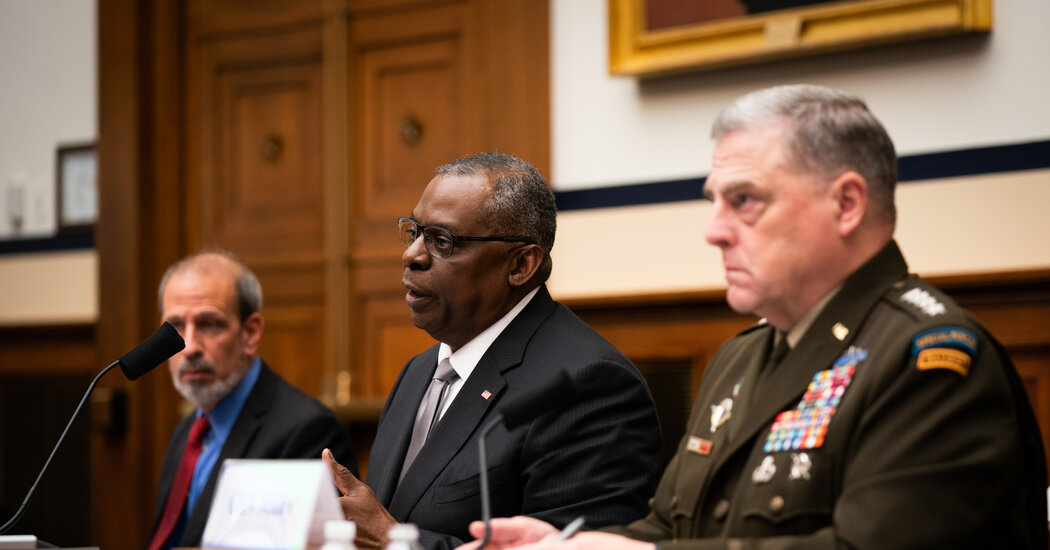Nearly a month after the last American troops departed Afghanistan in a hasty evacuation, the Pentagon’s top brass on Tuesday morning will face sha
Nearly a month after the last American troops departed Afghanistan in a hasty evacuation, the Pentagon’s top brass on Tuesday morning will face sharp questions from lawmakers about the military’s role at the end of the nation’s longest war.
Defense Secretary Lloyd J. Austin III and Gen. Mark A. Milley, the chairman of the Joint Chiefs of Staff, are certain to be asked about their advice earlier in the year to President Biden not to withdraw all U.S. troops from the country.
Gen. Kenneth F. McKenzie, Jr., the head of the military’s Central Command, which oversees Afghanistan, offered the same advice to the president. General McKenzie will also appear before lawmakers.
In the first of back-to-back Senate and House hearings this week, General Milley is expected to be asked why he declared a U.S. drone attack in Kabul last month “a righteous strike” even after military officials said they were investigating reports of civilian casualties. The Pentagon acknowledged a week later that the strike was a tragic mistake, killing 10 people, including seven children. General Milley tacitly conceded that he spoke too soon, calling the error “heart-wrenching.”
Tuesday’s hearing before the Senate Armed Services Committee is nominally about the frantic evacuation from Kabul and the Pentagon’s strategy to fight terrorist groups there from long distances. But lawmakers from both parties are expected to use the moment to raise other topics in what is expected to be a rancorous partisan donnybrook.
Republicans are likely to zero in on comments General Milley made to a succession of authors about his efforts during the last chaotic months of the Trump administration to protect the military and American democratic institutions from a president who was searching for avenues to stay in power.
Those moves, as described in a new book, culminated with General Milley twice calling to reassure his Chinese counterpart and extracting promises from the military chain of command not to launch a nuclear weapon on Mr. Trump’s orders without first alerting him.
www.nytimes.com
